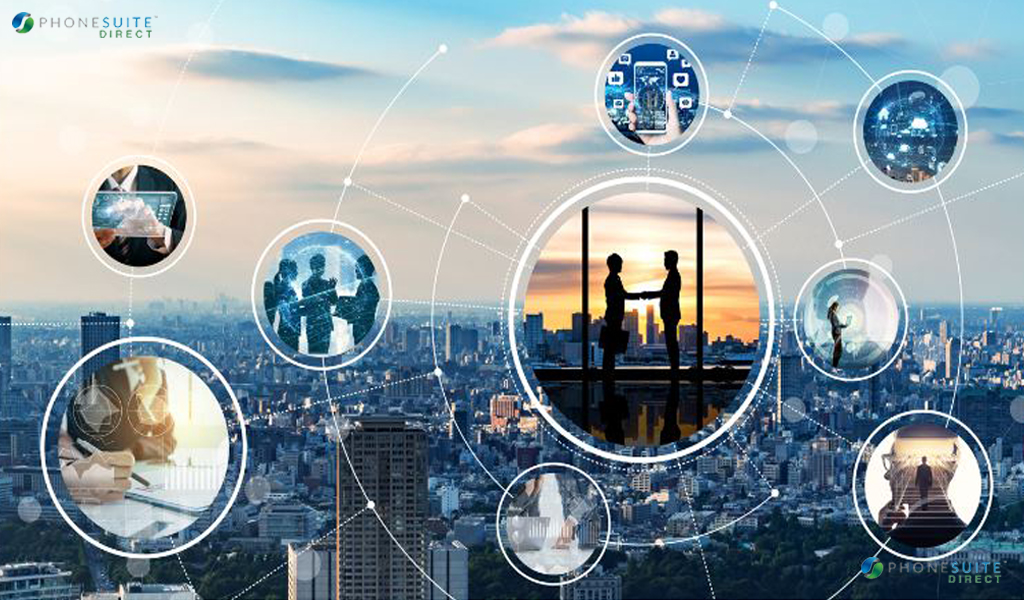When it comes to hotel hospitality, one size does not fit all. Guests have different expectations when it comes to their stay, and as a result, hotels are looking for new ways to provide personalized service that meets each individual’s needs. Enter real-time assistance: the latest customer service technology designed to instantly reply to any queries guests may have about their stay at the hotel. With instant support and access to information without ever having to wait in line or speak with someone, customers can get what they need quickly and efficiently, allowing for a much better overall experience than traditional methods of communication. In this blog post, we’ll leverage AI and automation to enhance the support experience and explore the benefits of real-time assistance for hotels and how you can use it as part of your customer experience strategy today!
Introducing Real-Time Assistance: What Is It and How Can It Help Hotels Improve Guest Experiences?
Real-time assistance refers to the provision of immediate support, information, and services to guests at hotels through various communication channels and technologies. It aims to enhance guest experiences by addressing their needs promptly and efficiently.
What Is Real-Time Assistance?
Real-time assistance involves leveraging technology such as mobile apps, chatbots, AI-powered voice assistants, and live chat support to provide instant responses and solutions to guest inquiries, requests, and concerns. It enables hotels to offer personalized and proactive assistance throughout the guest journey, from booking to check-out and beyond.
How Can It Help Hotels Improve Guest Experiences?
Instant Responses:
Real-time assistance ensures that guests receive immediate responses to their queries and requests, minimizing wait times and enhancing satisfaction.
Personalization:
By leveraging guest data and preferences, hotels can personalize recommendations, services, and offers delivered through real-time assistance channels, creating a more tailored experience for each guest.
Convenience:
Guests can access information, make bookings, request services, and resolve issues conveniently through their preferred communication channels, whether it’s a mobile app, website, or voice-controlled device.
Efficiency:
Real-time assistance streamlines communication and service delivery processes, enabling hotels to handle guest inquiries and requests more efficiently, thereby improving operational efficiency.
24/7 Support:
With real-time assistance, hotels can provide round-the-clock support to guests, ensuring that their needs are met at any time of the day or night.
Reduced Friction: By offering seamless and hassle-free interactions, real-time assistance reduces friction points in the guest experience, leading to higher levels of satisfaction and loyalty.
Feedback and Improvement:
Real-time assistance channels can serve as valuable feedback mechanisms, allowing hotels to gather insights from guests in real time and make continuous improvements to their services and offerings.
Benefits of Offering Real-Time Assistance for Hotel Guests
Offering real-time assistance for hotel guests comes with a myriad of benefits that significantly enhance the guest experience and contribute to the success of the hotel. Here are some key advantages:
Personalized Experience:
- Real-time assistance allows hotels to leverage guest data and preferences to deliver personalized recommendations, services, and offers, creating a tailored experience for each guest.
Convenience and Accessibility:
- Guests can access information, make bookings, request services, and resolve issues conveniently through their preferred communication channels, whether it’s a mobile app, website, or voice-controlled device.
Reduced Friction Points:
- By minimizing wait times and eliminating communication barriers, real-time assistance reduces friction points in the guest experience, resulting in smoother and more enjoyable stays.
Competitive Advantage:
- Hotels that embrace real-time assistance technologies gain a competitive edge by differentiating themselves in the market and catering to the evolving needs and preferences of modern travelers.
Data Insights:
- Real-time assistance platforms capture valuable guest data and insights, such as preferences, behavior patterns, and satisfaction levels, which hotels can use to inform marketing strategies, operational decisions, and service enhancements.
Safety and Security:
- Real-time assistance can include features such as emergency notifications and safety alerts, providing guests with peace of mind and ensuring their safety during their stay.
Integration with IoT Devices:
- Real-time assistance platforms can integrate with Internet of Things (IoT) devices in guest rooms, enabling guests to control room amenities such as lighting, temperature, and entertainment systems through voice commands or mobile apps.
Brand Differentiation:
- Hotels that offer cutting-edge real-time assistance services differentiate themselves from competitors and position themselves as innovative and customer-centric brands, attracting tech-savvy travelers and enhancing their brand reputation.
Leveraging AI and Automation to Enhance the Support Experience
Leveraging AI and automation can significantly enhance the support experience for hotel guests by providing efficient, personalized, and round-the-clock assistance. Here’s how AI and automation can be utilized:
-
Chatbots and Virtual Assistants:
Implement chatbots on the hotel website, mobile app, and messaging platforms to provide instant responses to guest inquiries. These chatbots can handle common queries, such as room availability, amenities information, and FAQs, freeing up staff to focus on more complex tasks.
-
Natural Language Processing (NLP):
Use NLP technology to enable chatbots and virtual assistants to understand and respond to guests’ natural language queries, improving the accuracy and effectiveness of interactions.
-
Voice Recognition Systems:
Integrate voice recognition systems into guest rooms, allowing guests to use voice commands to request services, control room amenities, and access information. Voice-controlled AI assistants like Amazon Alexa or Google Assistant can enhance the convenience and accessibility of support services.
-
Predictive Analytics:
Utilize predictive analytics algorithms to anticipate guests’ needs and preferences based on historical data and behavior patterns. This enables hotels to proactively offer personalized recommendations and services, enhancing the guest experience.
-
Automated Booking and Reservation Systems:
Implement automated booking and reservation systems that allow guests to make reservations for dining, spa treatments, activities, and transportation through the hotel’s website or mobile app. Automation streamlines the booking process and reduces the likelihood of errors.
-
Robotic Process Automation (RPA):
Use RPA technology to automate repetitive back-office tasks, such as data entry, report generation, and invoice processing. By automating these tasks, hotel staff can focus on delivering more personalized and attentive service to guests.
-
Smart Room Technology:
Equip guest rooms with smart devices and IoT sensors that can automatically adjust room settings, such as temperature and lighting, based on guest preferences and occupancy status. This enhances guest comfort and convenience while reducing energy consumption.
-
Sentiment Analysis:
Implement sentiment analysis tools to analyze guest feedback and reviews in real time. By monitoring sentiment trends, hotels can identify areas for improvement and take proactive measures to address guest concerns before they escalate.
Connecting Hotel Guests to Agents When Necessary
Connecting hotel guests to live agents when necessary is essential for providing personalized and high-quality support. Here’s how hotels can seamlessly transition guests from automated systems to live agents:
Intelligent Routing Systems: Implement intelligent routing systems that analyze guest inquiries and route them to the most appropriate live agent based on factors such as expertise, workload, and availability. This ensures that guests are connected to agents who can efficiently address their specific needs.
Priority Queuing: Prioritize guest inquiries based on urgency and importance to ensure that critical issues are addressed promptly. Implement priority queuing systems that automatically elevate urgent inquiries to the top of the queue, minimizing wait times for guests requiring immediate assistance.
Seamless Handoff: Ensure a seamless handoff process when transitioning guests from automated systems to live agents. Provide context to live agents by transferring relevant information from the automated system, such as the guest’s inquiry history and any actions already taken.
Omnichannel Support: Offer omnichannel support options that allow guests to seamlessly switch between different communication channels, such as chat, phone, and email, while maintaining continuity in their support experience. Ensure that guest information is synchronized across all channels to provide a consistent and personalized experience.
Empowered Agents: Empower live agents with the tools, training, and authority to resolve guest issues efficiently and effectively. Provide agents with access to comprehensive guest profiles and historical interaction data to personalize their support and deliver a seamless experience.
Empathetic Communication: Train live agents to engage with guests in an empathetic and attentive manner. Empathy can go a long way in building rapport with guests and creating a positive support experience, even in challenging situations. Agents should actively listen to guests, acknowledge their concerns, and demonstrate genuine care and understanding.
Multilingual Support: Offer multilingual support to accommodate guests from diverse linguistic backgrounds. Ensure that live agents are proficient in multiple languages or have access to language translation tools to effectively communicate with guests who may not be fluent in the hotel’s primary language. This fosters inclusivity and ensures that all guests receive the assistance they need.
Implementing an Effective Feedback System to Ensure Quality Service Delivery
Implementing an effective feedback system is crucial for hotels to ensure quality service delivery and continuously improve the guest experience. Here’s how hotels can establish a robust feedback system:
Multiple Feedback Channels:
- Offer multiple channels for guests to provide feedback, including online surveys, feedback forms in guest rooms, mobile apps, and email. Providing various channels increases the likelihood of guests sharing their opinions and preferences.
Post-Stay Surveys:
- Send post-stay surveys to guests shortly after their departure to gather comprehensive feedback about their overall experience. Include questions about various aspects of the stay, including accommodation, amenities, staff interactions, cleanliness, and food quality.
Anonymous Feedback Option:
- Offer guests the option to provide feedback anonymously to encourage honest and candid responses. Assuring guests that their feedback will be valued and used to improve service delivery.
Incentivize Feedback:
- Offer incentives, such as discounts on future stays or complimentary amenities, to encourage guests to participate in feedback surveys. This incentivization can increase survey response rates and provide valuable insights into guest preferences.
Thematic Analysis:
- Use thematic analysis techniques to categorize and analyze feedback data, identifying recurring themes, trends, and areas for improvement. Thematic analysis enables hotels to gain actionable insights from guest feedback and prioritize areas for enhancement.
Actionable Feedback Reports:
- Generate actionable feedback reports that summarize key insights and recommendations based on guest feedback. Share these reports with relevant departments and stakeholders to initiate corrective actions and improvement initiatives.
Closed-Loop Feedback Process:
- Establish a closed-loop feedback process whereby hotels follow up with guests who have provided feedback to acknowledge their input, address any concerns or complaints, and communicate any actions taken to resolve issues. This demonstrates the hotel’s commitment to guest satisfaction and continuous improvement.
Phonesuite Direct Products & Services
In conclusion, Phonesuite’s Direct hospitality products and services offer an incredible opportunity for hoteliers to increase their bookings, by providing their customers with the latest technology for a smooth and seamless experience. With PhoneSuite’s products and services, any hotelier can overcome communication challenges while increasing the level of service they are able to provide. Not only will hotels benefit from having access to cutting-edge phone systems but they will also benefit from the ability to create an all-encompassing guest experience. Whether it is a simple lobby phone solution or larger system involving workforce scheduling and management tools, PhoneSuite has the right solution for you. Investing in these solutions may seem daunting at first, however, when you reap the rewards of improved customer satisfaction rates, you will be sure you made the right decision. Therefore, if you think your business could use a little boost, then ChannelCap’s PhoneSuite solutions are surely worth considering.




